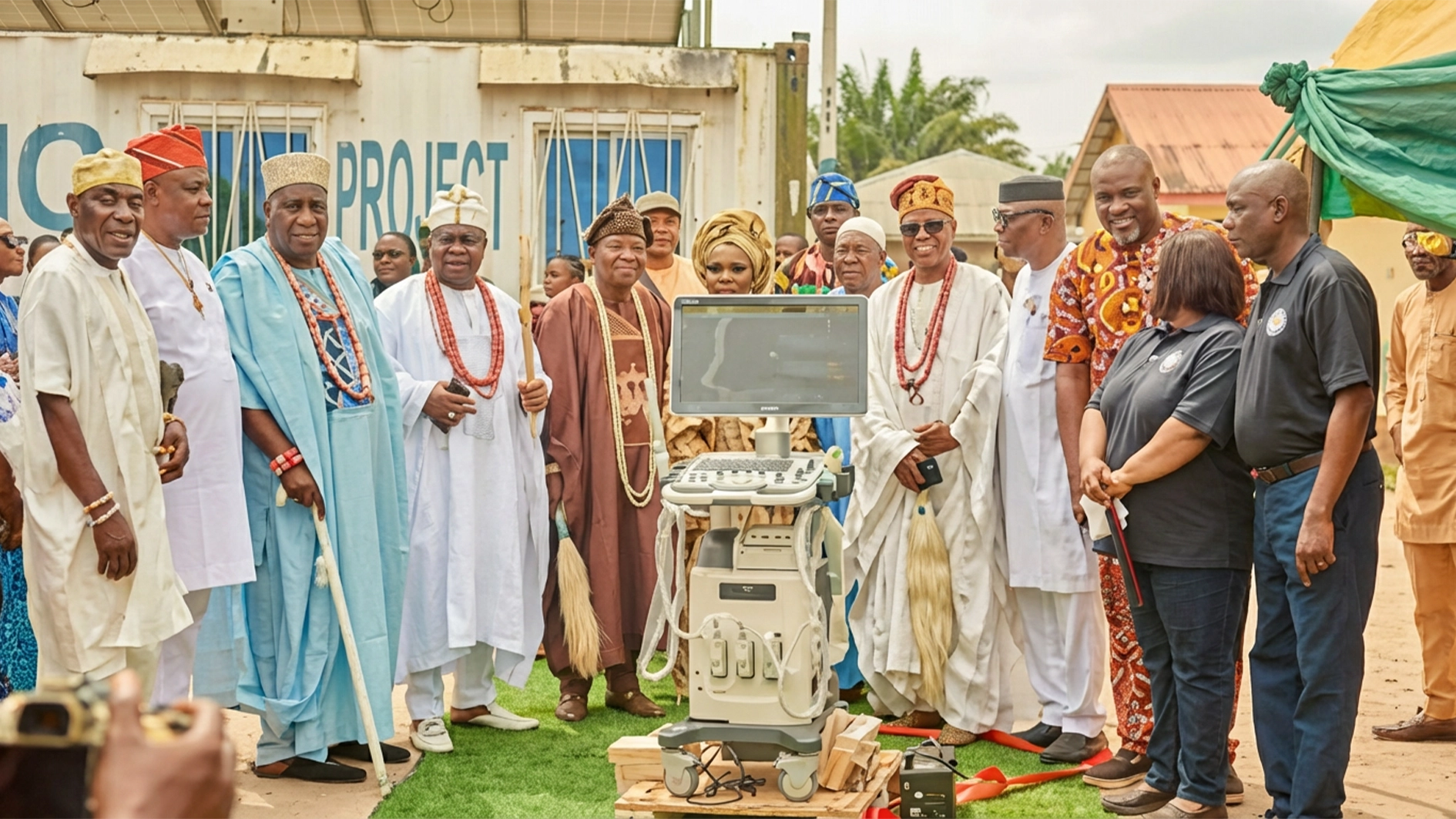As global power dynamics continue to shift and traditional alliances face increasing scrutiny, Nigeria finds itself at a critical juncture, torn between its historical ties to the West and emerging opportunities in the Global South. Opinions are divided on whether the most populous black nation should deepen its engagement with the BRICS or retain its non-aligned posture, NGOZI EGENUKA reports.
At the 17th BRICS summit held recently in Rio de Janeiro, Brazil, 11 of the world’s largest emerging economies gathered under a banner of multilateralism, economic solidarity, and the pursuit of a reformed global order.
BRICS is an acronym for Brazil, Russia, India, China, and South Africa. The gathering culminated in the signing of a landmark joint declaration titled: “Strengthening Global South Cooperation for More Inclusive and Sustainable Governance”, which featured 126 commitments aimed at reshaping international relations and amplifying the voices of developing nations.
One of the commitments in the declaration reads: “We want to reaffirm our commitment to the BRICS spirit of mutual respect and understanding, sovereign equality, solidarity, democracy, openness, inclusion, collaboration and consensus. Building upon the past 17 BRICS summits, we are now extending our commitment to strengthening cooperation within the expanded BRICS, based on three pillars of cooperation: politics and security, economy and finance, as well as cultural and people-to-people cooperation.
“We are also enhancing our strategic partnership to benefit our peoples by promoting peace, a fairer and more representative international order, a revitalised and reformed multilateral system, sustainable development, and inclusive growth.”
BRICS now includes six new members from Asia, Africa, and the Middle East, following recent expansion. This development underscores its aspiration to serve as a coalition for the Global South, aiming to balance Western dominance in international governance and finance.
Nigeria became the ninth partner country of BRICS in January 2025, joining Belarus, Bolivia, Cuba, Kazakhstan, Malaysia, Thailand, Uganda, and Uzbekistan. The 16th BRICS Summit in Kazan in October 2024 created the partner-country category.
Yet the bloc faces internal contradictions, from economic disparities between members to divergent foreign policy interests. India’s cautious stance on China, Russia’s war in Ukraine, and Brazil’s delicate balancing act all highlight the fragility of BRICS unity.
Nigerian President, Bola Tinubu, who was at the summit, called for a reevaluation of the current global governance structure, financial and healthcare systems, urging greater equity and inclusion for low-income and emerging economies, particularly in Africa.
He noted that environmental degradation, climate crisis, and global healthcare inequalities were shared concerns pertinent to Africa.
For Nigeria, the path forward demands a blend of boldness and diplomacy. While BRICS offers promising avenues for trade diversification, development finance, and geopolitical relevance, the risks of alienating key Western partners cannot be ignored.
With global power dynamics shifting, the question increasingly being asked is whether Nigeria should fully align with BRICS? As the African giant treads cautiously, pundits are divided on whether deeper association with the bloc would serve Nigeria’s strategic interests or backfire.
Senior Research Fellow, NIIA, Dr Adesuwa Erediauwa, believes Nigeria’s current partnership with BRICS is beneficial, but suggests that eventual membership could unlock further benefits if approached strategically.
“Our partnership status reflects our non-aligned stance and allows us to participate without making decisions. However, it’s beneficial for us to be partners and maybe even members because there are a lot of benefits,” she said.
She described BRICS as a coalition actively working toward a multipolar world order, a vision that resonates with many developing nations. Through mutual support and shared platforms like the BRICS New Development Bank, the bloc offers alternatives to Western-led financial institutions.
“These are successful economies, so there’s a lot we can learn and adapt from them, especially regarding development finance,” she said.
But Erediauwa also echoed the need for caution and clarity in Nigeria’s engagement.
“Nigeria has to be strategic to prevent repeating the same outcomes from aligning with the West. We need to come up with our BRICS engagement strategy. What do we want? If we want loans for infrastructure, how do we want to position ourselves for those loans?”
She emphasised the importance of local value creation in trade partnerships. “When it comes to trade, how do we want to trade? We need to clearly say we want to trade with you, and not you just taking our raw materials. You must also produce in Nigeria. That way, there’s job creation and capacity building through technological transfer,” she suggested.
Senior Research Fellow, Nigerian Institute of International Affairs, Dr Kester Onor, stated that the era of non-alignment is effectively over. According to him, Nigeria can no longer afford to “float” in the evolving world order.
“We have passed the era of non-alignment. Even when we claimed to be non-aligned in the earlier years, we were still aligned with the West. The way we treated the West then showed we were more favourably disposed towards them than the Soviet Union and Eastern Europe,” he said.
He argued that Nigeria, given its population and strategic importance on the continent, should have aligned with BRICS even before South Africa.
“Our alignment with the West has not been favourable due to their exploitative nature, which they have leveraged to the point of mental stupor,” he said.
He further stressed the economic advantages Nigeria stands to gain through full BRICS membership, from trade realignment to access to large markets and development funds.
“If we align with BRICS, there are endless opportunities, trade, access to enormous resources, and a larger market to build our economy. We should not stand as an observer nation but join fully to access the large pool of funds.”
Onor also emphasised the inevitability of China’s global economic dominance.
 His words: “We have gotten to a point where China can no longer be ignored. In the foreseeable future, it has become imperatively obvious that China, economically, will grow more than the United States.
His words: “We have gotten to a point where China can no longer be ignored. In the foreseeable future, it has become imperatively obvious that China, economically, will grow more than the United States.
“Though America currently surpasses China in military might, once China surpasses the United States economically, it will begin to upgrade its weaponry. With money, a lot of things can be done. So, it’s better that we align now. If we say we are non-aligned, we are deceiving ourselves.”
Despite potential repercussions such as trade sanctions from the West, Onor maintains that Nigeria should grandstand and devise a clear strategy, and boldly explore an alternative path.
However, the head of the Security and Strategic Studies Division, Research and Studies Department at the Nigerian Institute of International Affairs (NIIA), Professor Joshua Bolarinwa, thinks differently.
He warned that BRICS may not endure in the long term. “BRICS would not stand the test of time. Already, powerful forces like Trump have disrupted it,” Bolarinwa said, referencing United States tariffs that targeted Chinese goods and contributed to China’s economic strain.
“Even China is running helter-skelter internally. They are struggling with the economy, massive unemployment, and youth restrictiveness due to their political system. Many billionaires have left China. Their policies are really affecting businesses,” he said.
He further observed a significant shift in the bloc’s unity: “For the first time in BRICS history, the main brain boxes who started it, President Xi of China and President Putin of Russia, refused to attend the summit. They sent representatives. That’s a clear signal of cracks within BRICS. It’s losing grip and shows signs of a split.”
While BRICS has positioned itself as a counterweight to Western dominance, Prof Bolarinwa argued that Nigeria must be cautious. Rather than joining the bloc outright, it should remain in its current partnership status.
“With all that is happening, Nigeria’s partnership status is better than being a member. The West will come down hard on those who have opted to join the bloc. In international relations, alliances imply enemies. Once you join BRICS, the West, the United States, Europe, and NATO may treat you as an enemy. That’s what is already happening,” he said.
Bolarinwa argued that Nigeria’s non-member status allows it to avoid antagonising either side while benefiting from both.
“Nigeria has not offended America, Europe, NATO, or even China and Russia. In partnership, you are neither a member nor an enemy, so Nigeria has nothing to lose,” he stated.
He urged the country to remain neutral and uphold its non-aligned foreign policy principles. “Nigeria still remains a good partner of the West and a friend of the BRICS nations. But the dwindling influence of BRICS, especially the apparent disinterest from Russia and China, should be alarming. These newly inducted countries should be careful, lest they face sanctions which Russia and China might not be able to shield them from,” he warned.






